political polarization
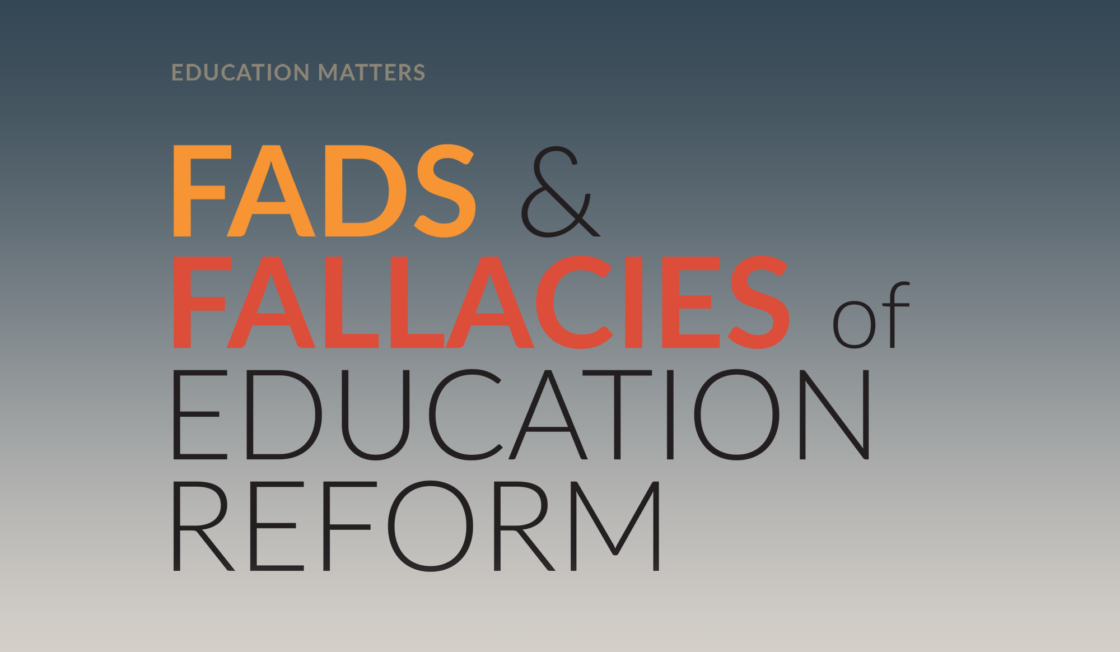
When you drive past any American school, you’ll see signs telling you to reduce your speed and declaring the area to be a “drug-free zone,” with draconian penalties for violators. While we can all agree on keeping drugs away from school children, drugs are not the only thing we keep out of schools. Unfortunately, when […]
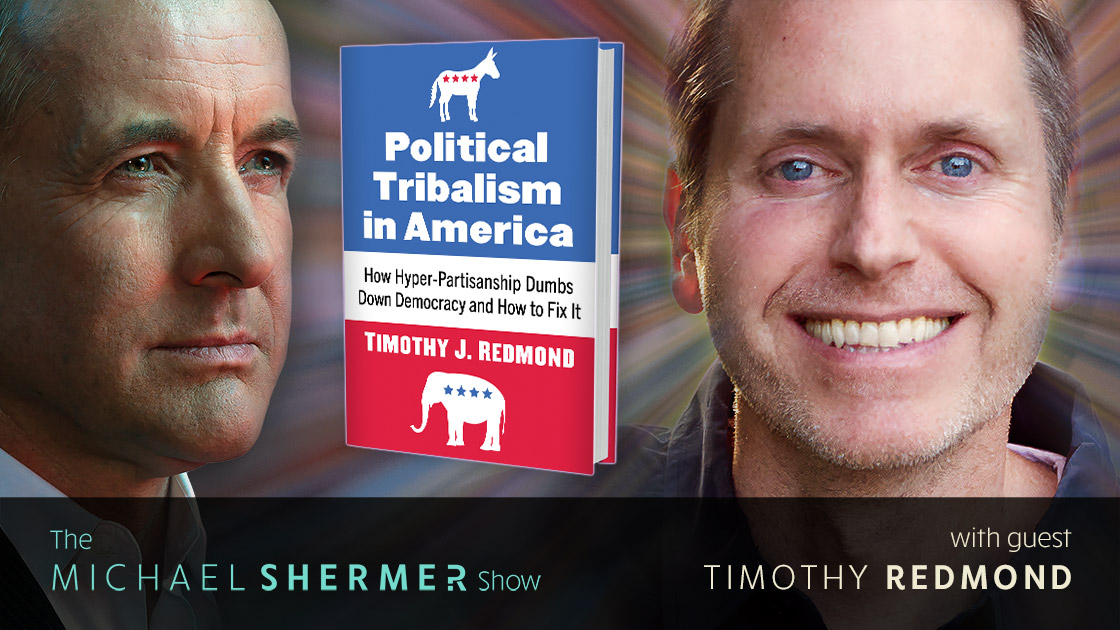
Shermer and Redmond discuss: why we have political duopoly (Duverger’s law) • parties vs. policies • Are we living in a post-truth, fake-news, alternative facts world? • How do we know political polarization is worse now than in the past? • acquiring, perceiving, and evaluating political information • evaluating: false political information, political numbers and arguments, claims of rigged election • whataboutism • cognitive responsibilities of citizenship • cognitive biases • political polarization • myside bias • numeracy vs. innumeracy…
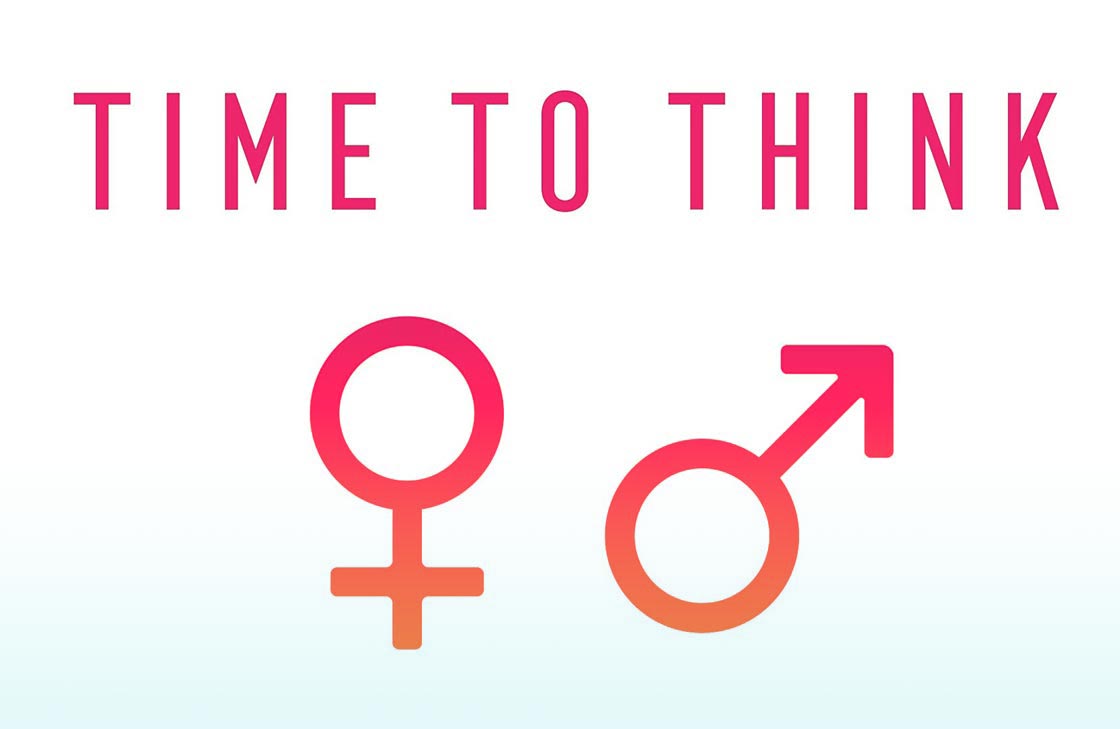
What is gender identity? Why do some people feel an inconsistency between their natal sex and the gender they consider themselves to be, and when and why does that “dysphoria” begin? A few very young children, mostly boys, prefer the clothes, names, and activities of girls before they even have a concept of “boy” and “girl.” But do the reasons for their gender incongruence apply to the adolescents, mostly girls, who show no interest in transitioning until puberty or later?…
While many essays have addressed the social events and psychological traits that drive polarized thinking, the neural underpinnings of uncertainty and polarization are largely unknown. We know the brain processes information and makes decisions, but we know little about how politically polarized information is encoded, and even less about how attitudes about uncertainty influence that processing. Why is it important? In this article Natasha Mott explains that uncertainty may be seen as a threat, which moves individuals toward certain positions…
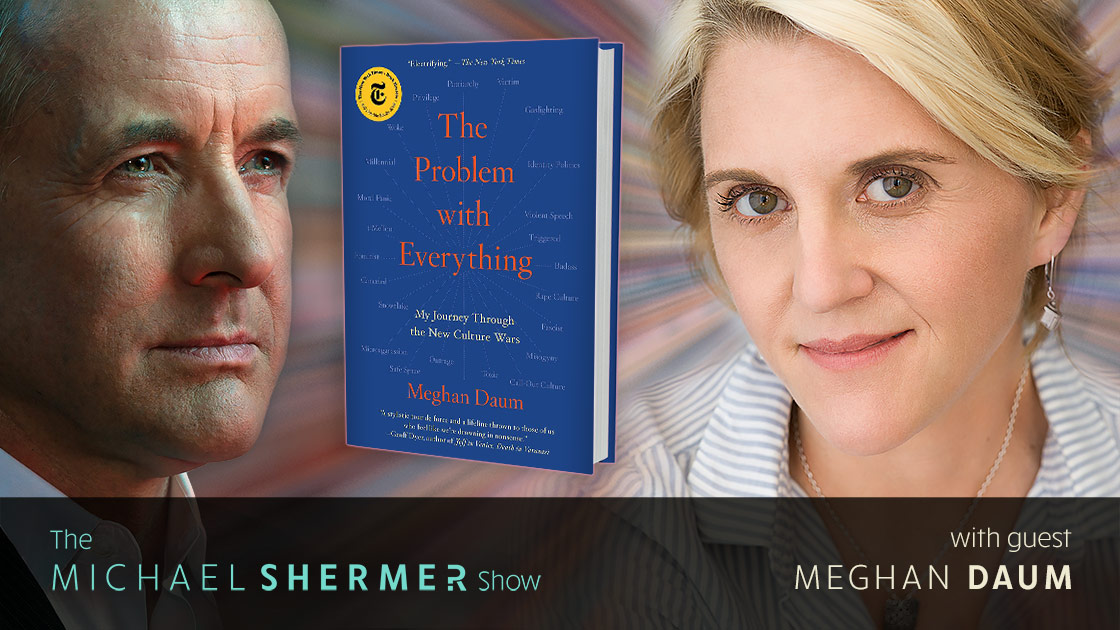
Shermer and Daum discuss: unauthorized autobiography • Feminism (first, second, third wave, and beyond) • Was the sexual revolution good or bad (or both) for women? • badassery, problematica, wokescenti, cognoscenti • Gen Xers • Elders • What is a woman? • Sex and Gender • who you identify as vs. who you’re attracted to • Trans • #metoo and #BLM movements • intersectionality • toxic masculinity • wokeness, liberal vs. progressiveness, far left vs. left • cancel culture, and…
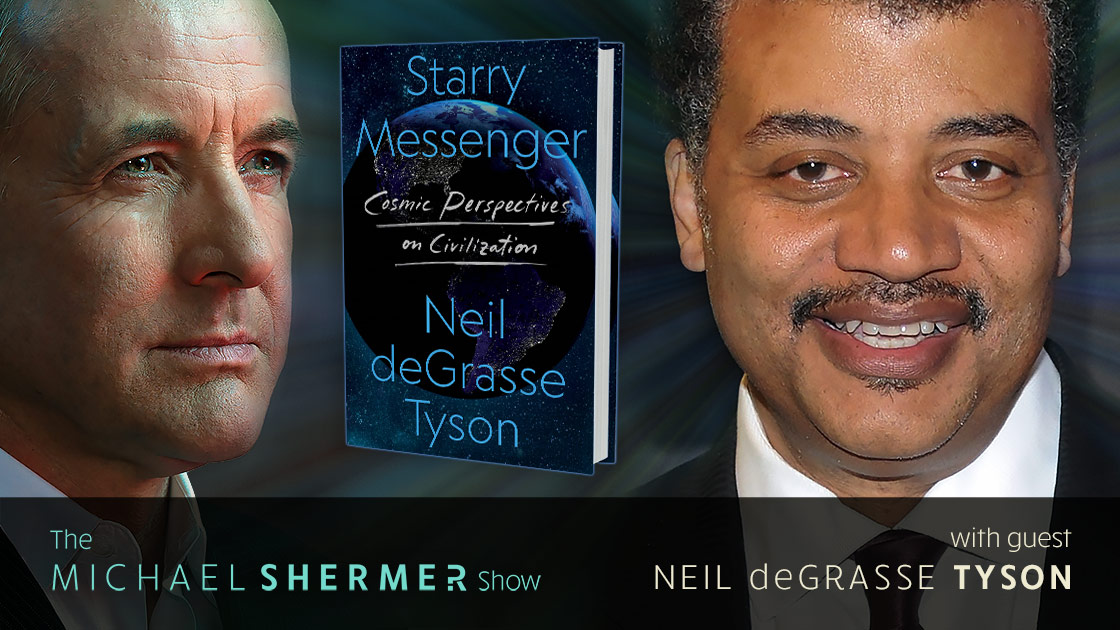
Shermer and Tyson discuss: why he decided to write about social, cultural, and political issues now • conflict and resolution in science and society • moral progress in society and why it happens • meatarians and vegetarians • race and gender • law and order • the principle of interchangeable perspectives • conflicting rights and how to resolve them • Rationalia (Neil’s hypothetical country whose laws are based on rationality) • life and death • how long Neil would like…

Since the dawn of social science, theorists have debated how and why societies appear to change, develop and evolve. Shermer speaks with sociologist Kevin McCaffree about: his research on crime and gun violence • diversity, equity, and inclusion • political polarization •cultural and biological evolution • horizontal/equalitarian vs. vertical/hierarchical societies • human selfishness and the problem of altruism, and what the future holds for humanity and society…
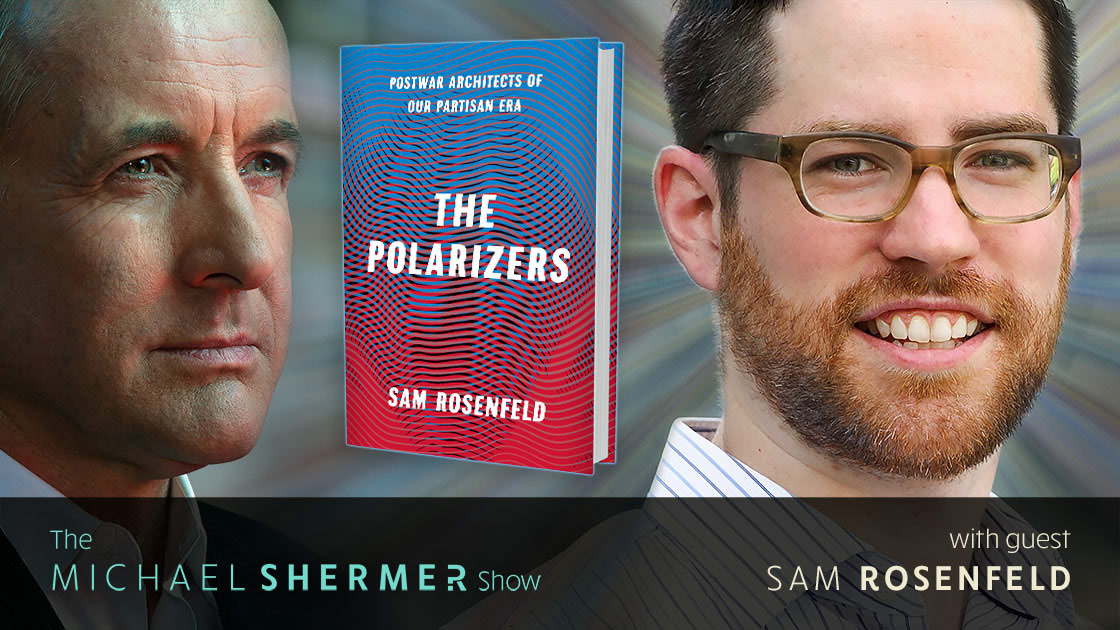
Shermer and Rosenfeld discuss: why we have a duopoly • gerrymandering • voting restrictions • how we know all elections are not rigged • abortion • immigration • US foreign policy • the rise of conservative and liberal think tanks • ideology • political polarization • political leanings of industrialists vs. tech billionaires and rural poor vs. urban poor • Trump and 2016, 2020, and 2024 (are we facing civil unrest as never seen before?)…
In this important analysis of the medical issues involving trans people, Dr. Harriet Hall reviews what medical science knows about puberty blockers, vaginoplasty, phalloplasty, rapid onset gender dysphoria, detransitioners, and why “watchful waiting” is probably the best strategy at the moment given the considerable uncertainties.

Michael Shermer speaks with Andrew Yang about the Forward Party, the future of politics in a party duopoly, political partisanship, and how to bring about the change we need. This conversation is based on Yang’s new book Forward: Notes on the Future of Our Democracy.

Michael Shermer speaks with Cathy Young, a cultural studies fellow at the Cato Institute. She writes on a wide variety of cultural and political issues, including gender issues (equal opportunity in the workplace, sexual harassment policy, sexual assault and domestic violence law, child custody, etc.), freedom of speech and intellectual tolerance, diversity, education, and perspectives on American history, as well as Russia and U.S.-Russian relations.
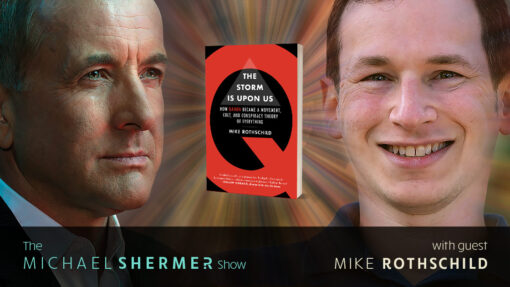
Its messaging can seem cryptic, even nonsensical, yet for tens of thousands of people, it explains everything: What is QAnon, where did it come from, and is the Capitol insurgency a sign of where it’s going next? Mike Rothschild is a journalist specializing in conspiracy theories. He has been collecting stories for years through interviews with QAnon converts, apostates, and victims, as well as psychologists, sociologists, and academics. He is uniquely equipped to explain the movement and its followers.
In episode 213, Michael Shermer speaks with Mike Rothschild, a journalist specializing in conspiracy theories, about QAnon and its followers, based on his book The Storm Is upon Us: How QAnon Became a Movement, Cult, and Conspiracy Theory of Everything. PLUS, we present as a free PDF download the Memorial Tribute to Skeptic’s Art Director and Co-Founder, Pat Linse, which appeared in Skeptic 26.3 (2021).
In episode 179 of Michael Shermer’s podcast, Michael Shermer speaks with one of the world’s most renowned historians, Niall Ferguson, who explains why our ever more bureaucratic and complex systems are making us worse, not better, at handling disasters.
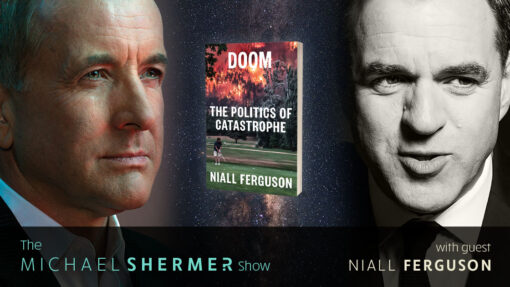
In episode 179 of Michael Shermer’s podcast, Michael Shermer speaks with one of the world’s most renowned historians, Niall Ferguson, who explains why our ever more bureaucratic and complex systems are making us worse, not better, at handling disasters.
In this cover story article (written in October 2020) for Skeptic magazine 25.4 (December 2020), Daniel Loxton considers the unsavory origins and rising threat of the QAnon conspiracy theory. Written prior to the deadly QAnon-led occupation of the Capitol Building in Washington, DC on January 6, 2021, this analysis exposes the conspiracy theory as baseless, unoriginal, and harmful for believers and society at large.

In this cover story article (written in October 2020) for Skeptic magazine 25.4 (December 2020), Daniel Loxton considers the unsavory origins and rising threat of the QAnon conspiracy theory. Written prior to the deadly QAnon-led occupation of the Capitol Building in Washington, DC on January 6, 2021, this analysis exposes the conspiracy theory as baseless, unoriginal, and harmful for believers and society at large.

The United States today is hopelessly polarized; the political Right and Left have hardened into rigid and deeply antagonistic camps, preventing any sort of progress. Amid the bickering and inertia, the promise of the 1960s—when we came together as a nation to fight for equality and universal justice—remains unfulfilled. Shermer and Steele discuss: what has changed in race relations in America in the past 30 years, and why “The promised land guarantees nothing. It is only an opportunity, not a…
In Science Salon podcast # 139, Michael Shermer speaks with Shelby Steele about his book Shame: How America’s Past Sins Have Polarized Our Country and about his new film What Killed Michael Brown?

Agenda-driven diversity and antiracism training programs are everywhere, but do they work in creating an inclusive culture? In our current climate of high racial tensions and deadlocked civil discourse, Dr. Mona Sue Weissmark asks “Is there a more effective way to break down these conversation barriers in order to answer some of the most difficult, polarizing questions that we face today?” PLUS, given the rising level of social and economic unrest seen in 2020, we announce a new study coming…
NEXT →






















